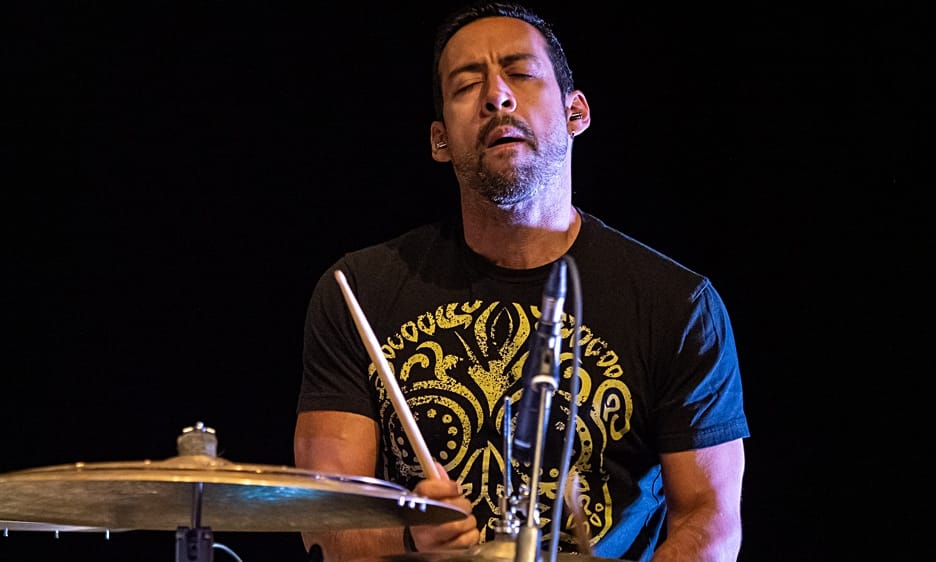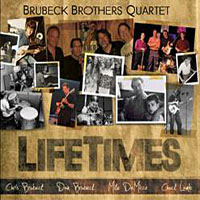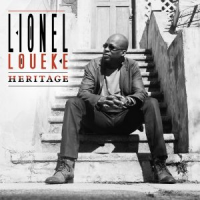Home » Jazz Articles » Catching Up With » Antonio Sanchez: Doing It All
Antonio Sanchez: Doing It All

Sanchez's debut as a leader, the hard-blowing Migration (Cam Jazz, 2007) marked a new chapter in his career, and a live recording, Live In New York at Jazz Standard (Cam Jazz, 2010) continued his upward trajectory as bandleader/composer. With his third solo New Life due for release in early 2013, Sanchez is beginning to develop a strong identity as a recording artist in his own right.
Currently, Sanchez is touring extensively in Europe and North America with Pat Metheny's incendiary new Unity Band quartet, with saxophonist Chris Potter and bassist Ben Williams. The band's CD, Unity Band (Nonesuch Records, 2012) has been receiving rave reviews universally, and if feelings are anything to go by, then for Sanchez, this is an outfit which could run for some time yet.
All About Jazz: Antonio, you're well into your tour with Pat Metheny's Unity Band; what has the vibe been like onstage night after night with this lineup?
Antonio Sanchez It's been great. The music is a lot of fun. Not too complicated but with lots of great stuff you can sink your teeth into and come up with new things to do every night. Chris is amazing. We've played in a bunch of different settings so it's great to play with him and Pat on the same stage. Ben is super solid and a blast to play with.
AAJ: You obviously know Potter very well and he played on your debut as leader, Migration too, but had you ever played with Ben Williams before?
AS: The first time I played with Ben was in guitarist David Gilmore's record a couple of years ago. It was a quintet date with [saxophonist] Marcus Strickland and [pianist] Luis Perdomo. We actually haven't finished that record. Dave is trying to get us all into the studio to do a couple more tunes but it's been a challenge to get everybody together, as you imagine. Then we did a few trio gigs with Pat [Metheny] in Florida and then Mexico. It has been effortless to play with him.
AAJ: How well can you get the feel for a musician, like Williams, that you've played with for only a short time, relatively speaking? What are the advantages and disadvantages of such of setup?
AS: When you play with people that have a lot of knowledge and love for different kinds of music, a strong foundation and an easy going musical personality you find that is pretty easy to find a common ground to base your communication on. The hard thing is when somebody is close minded or from a completely different generation with radically different views on what music should be. Ben is the former kind of musician, thankfully.
AAJ: Do you think in terms of you and Williams as the rhythm section, or do you see this band as a four-piece rhythm section with individual roles?
AS:I see the band as a flexible entity. Sometimes we are supporting and sometimes we take a very active part in what's happening in each others' solos. I'm a very interactive player so sometimes is good when Ben lays a foundation so that I can do my thing with the soloist. Having said that I always try to be supportive no matter what is going on.
AAJ: What's it like playing with the Orchestrion?
AS: It's actually a lot of fun to hear all those parts behind us while we are playing. They make it sound like a huge ensemble so it's nice to have that very different texture in the middle of the set. It's also great to have somebody in the band that doesn't need to be fed and that is never tired!
AAJ:The music on the CD runs to about an hour; do you stretch these tunes out much in concert or are you playing other material that isn't on Unity Band?
AS: On concerts we've been playing just the music from the CD. Sometimes we stretch and sometimes we keep the tunes somewhat close to the recording in terms of length. Pat usually gages the audience and decides when to stretch or when not to. He's great at pacing the set that way. Also we've added another section towards the end of the set in which Pat plays with the three of us separately as duos, and that has added another dimension to the whole thing.
AAJ: The music on Unity Band strikes me as primarily highly melodic; would you say that this is Metheny's strongest , or perhaps most distinctive compositional quality?
AS: I think that's definitely one of Pat's strongest points. He can get a lot of complexity in his tunes across thanks to the fact that he can tie everything together with a beautiful and simple melody that just makes sense. That's really hard to do, in my opinion.
AAJ: Metheny paid you a great compliment when he described your presence in the Pat Metheny as "one of the most significant changes in the band's 28-year history"; how has your tenure in the PMG influenced you as a musician/composer?
AS:Immensely; not only with the PMG, but working with Pat in a bunch of different projects; The PM Trio, with [bassist] Christian McBride for a few years, the Gary Burton Quartet Revisited for a few tours, and now the Unity Band. Every situation teaches me something new and inspires me in different ways as a player and as composer. I just recorded my third album entitled New Life, and it's all-original material. The PMG has been a huge inspiration to write more complex tunes with more sections and orchestration. In Migration I wrote a lot of head in-solos-head out kind of tunes. Now I'm trying to expand on that and orchestrate things to make them sound bigger and fuller. I also added piano because that's how I compose. It's funny that on Migration I decided not to use piano even though I wrote the tunes that way.
AAJ: Did the process of composing the material for Migration change your approach to drumming in any way at all?
AS: I think every new project changes my drumming in some way because I'm all about adapting to new music. Migration was a great learning experience for me because even though I was the leader I didn't want it to sound as a drummer's record so I really tried to come across strong but not overpowering. Hopefully I achieved that.
AAJ: The last performance of the PMG was before 100,000 people at the 2005 Montreal Jazz Festival; what was it like playing before a crowd of such magnitude?
AS: Pretty surreal. When there are that many people you just see a mass in front of you. You don't distinguish faces. For me it's actually way more intimidating to play a small jazz club where you can see and hear people's reactions and hear a pin drop when they're silent. Playing big crowds is amazing because of the energy they give you back but the intimacy you get in small crowds is great for playing in daring, interactive ensembles.
AAJ: The post-recording, post-tour hiatuses of the PMG keep getting longer and longer; do you know are there plans for another PMG CD/tour on the horizon?
AS: I think it's time for another PMG project. The global economic situation has made it harder to tour the way we are used to because it's a big operation that involves a lot of gear and people but I think Pat is getting closer to wanting to do it again. There's nothing that comes close in terms of fan's expectations I think. Everybody is craving another go around.
AAJ:Your drumming on Unity Band comes across as extremely subtle and on much of your recorded output it's as subtle as it is propulsive; did you always have this deceptive lightness of touch?
AS: I think that has happened with time. When I used to work with [pianist] Danilo Pérez, we did tons of trio concerts and a lot of the time I had to play really soft but with lots of intensity, because of the music and venues we were playing. That helped me a lot in terms of touch. I had to play with lots of lightness and propulsion at the same time. It's something that stayed with me and that I've been able to apply to every other project I've been a part of since.
AAJ: You've recently finished mastering New Life, your third CD as leader; can you tell us who plays with you on that and what we can expect to hear?
AS: The band is great. It's David Binney on alto, Donny McCaslin on tenor, John Escreet on piano and Rhodes and Matt Brewer on bass. We did a five-and-a-half-week-long tour last fall and I had all the music I wanted to record ready so we got to play it a lot before we got to the studio last January. Without that tour I don't think the music would have come out as great as it did.
Like I said before, it's all original tunes and it's a huge step for me as a composer. The tunes are more involved, orchestrated and I really put a lot of effort into them. I wanted to make an album that was compelling, challenging and accessible to the listener. I think we got a good balance of all those things. I want a jazz musician to like it but I also want my mom and my grandfather to like it, if you know what I mean. I think there's enough melodic material that people can relate to and enough complexity to keep a more trained ear interested. It will probably come out January 2013.
AAJ:That's something we'll all be looking forward to. What's the feeling within the band after recording and touring, I mean, do you see the Unity Band recording more together?
AS: That would be great. We've only finished a third of the tour so we still haven't discovered all that we can do. When you get into the 30th plus gig that's when you start realizing your full potential. It's just a matter of timing and what Pat is thinking of doing next. This could definitely be an ongoing project because we have the intimacy of a small jazz combo or the punch-in-the-gut of a big rock group. We have played small venues and really big ones as well and it has worked beautiful every time. Chris is such a power house and so is Pat of course. Having those two guys in the front line can mean fireworks, but we can also play a beautiful ballad in a very quiet way. I think the sky is the limit...
Selected Discography
Pat Metheny Unity Band, Unity Band (Nonesuch Records, 2012)Donny McCaslin, Perpetual Motion (Greenleaf Music, 2011)
The New Gary Burton Quartet, Common Ground (Mack Avenue Records, 2011)
Antonio Sanchez, Live in New York at Jazz Standard (Cam Jazz, 2010)
Pat Metheny Trio, Day Trip (Nonesuch Records, 2008)
Antonio Sanchez, Migration (Cam Jazz, 2007)
Photo Credit: Antonio Baiano
Tags
Antonio Sanchez
Catching Up With
Ian Patterson
Nonesuch Publicity
United States
pat metheny
Gary Burton
Michael Brecker
Chick Corea
Danilo Perez
Chris Potter
Ben Williams
David Gilmore
Marcus Strickland
Luis Perdomo
Pat Metheny Group
Christian McBride
David Binney
Donny McCaslin
John Escreet
Matt Brewer
PREVIOUS / NEXT
Antonio Sanchez Concerts
Support All About Jazz
 All About Jazz has been a pillar of jazz since 1995, championing it as an art form and, more importantly, supporting the musicians who make it. Our enduring commitment has made "AAJ" one of the most culturally important websites of its kind, read by hundreds of thousands of fans, musicians and industry figures every month.
All About Jazz has been a pillar of jazz since 1995, championing it as an art form and, more importantly, supporting the musicians who make it. Our enduring commitment has made "AAJ" one of the most culturally important websites of its kind, read by hundreds of thousands of fans, musicians and industry figures every month.
























